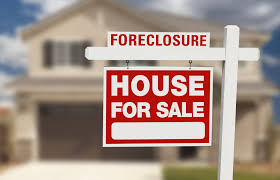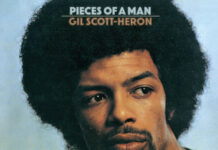One of this holiday season’s biggest and most timely movie hits is “The Big Short,” an unusual film about one of the most esoteric financial topics ever to be presented to a mass audience on the big screen.

There are no car chases, shots of cleavage or explosions in the film, but for anyone who owned a home, knew anyone who lost their home, got laid-off as a result of the 2008 recession, or wondered how the deepest recession since the Great Depression (1929-1939) started, this is the movie for you.
Based on the book by Michael Lewis of the same title, the movie delves into the systemic mortgage and real estate fraud that combined to fuel the demand for esoteric financial derivatives (collateralized mortgage obligations and synthetic swaps) that are foreign concepts to 99% of Americans.
Yet as the movie shows, these esoteric mortgage derivatives were sold by greedy, highly-compensated, educated financial product salesmen and senior executives at some of the world’s largest global investment banks. These untested instruments were sold worldwide on the age-old and unproven premise that any financial asset that goes-up must continue to go-up, at least until the music stops.
These same untested financial instruments were then given top bond ratings by the world’s largest bond rating agencies (Standard & Poor’s and Moody’s) not based on stress tests, but because these rating firms were afraid of losing their rating service fees to the competition.
“The Big Short” distills the complex financial products, macro-economics and financial strategies that produced the market crash and resulting recession by telling the story from the personal stories of three groups of traders. These independent thinkers questioned the prevailing euphoric, economic rationale of the housing market and the underlying quality of the mortgages that comprised the complex mortgage derivatives.
More importantly, from political and social perspectives, the movie also questions the ethics of global bank executives, regulators, rating agencies and anyone else associated with this systemic real estate-mortgage fraud. The movie also openly and pointedly questions why none of the global banks and individuals associated with the systemic fraud were ever prosecuted by federal authorities.

And this is where the movie becomes a lightning rod for Republican presidential candidates who uniformly are against any Wall Street reform and the long-overdue need for the Glass-Steagall banking act to become law again.
Of all the presidential candidates, only Democrats Bernie Sanders (D-Vt.) and to a much lesser degree, Hillary Clinton, will even address the need for Wall Street reform publically. Of the two, Sanders is the most ardent reformer and has long called for breaking up the global banks and passing Glass-Steagall that are the main reasons for the 2008 housing crash.
The Republican’s Culture War Against Hollywood
As a matter of policy, Republicans dislike Hollywood since it has the power to shape popular culture, question authority and provide emotional fodder to embolden public sentiment for a particular cause (such as prison reform, race relations, women’s rights, political reform.)
While Hollywood has not made a film as strident as “The Grapes of Wrath” (1940) based on the novel by John Steinbeck in years, it has produced films on topics concerning judicial corruption (“Michael Clayton,” 2007), corporate corruption (“The Pelican Brief,” 1993), unionization (“Norma Rae,” 1979), as well as workplace discrimination and racism.
Here is a partial list of the films and their uncomfortable, off-limits topics that are not openly discussed by most 2016 Republican presidential candidates and some media outlets:
“Erin Brockovich” (sexism, 2000), “Glory Road” (racism, 1989), “Remember the Titans” (racism, 2000), “Trading Places” (racism, elitism, 1983), “Philadelphia” (anti-gay, 1993), “Inside Job (Wall Street abuses, 2010), “Wolf of Wall Street” (corruption, 2013 ), “Boiler Room” (Wall Street corruption, 2010), “Wall Street” (corruption, 1987), “G.I. Jane” (sexism, 1997), “Harold and Kumar Go to White Castle” (racism, 2004), “Concussion” (corporate cover-up, 2015); “Margin Call” (Wall Street corruption, 2011); “The Other Guys” (Ponzi schemes, 2010); “American Madness” (bank failures, 1932,); “99 Homes” (home foreclosures, 2015) and “Flashdance” (sexism, 1983.)
These issues are not discussed by most Republican presidential candidates. Too often, deep-rooted societal problems are ignored as Republican candidates focus on privatization, anti-regulation, the benefits of corporatism, boosting military budgets and reversing any social gains derived from the New Deal. Those topics are not covered in films, so Hollywood’s independent nature as a cultural and educational force remains a problem for Republicans. All this is just another reason why the GOP hates Hollywood.












Very interesting article and a perfect depiction of the movie and a reflection of the times…then and now in many ways. A must see!!!
Great post.